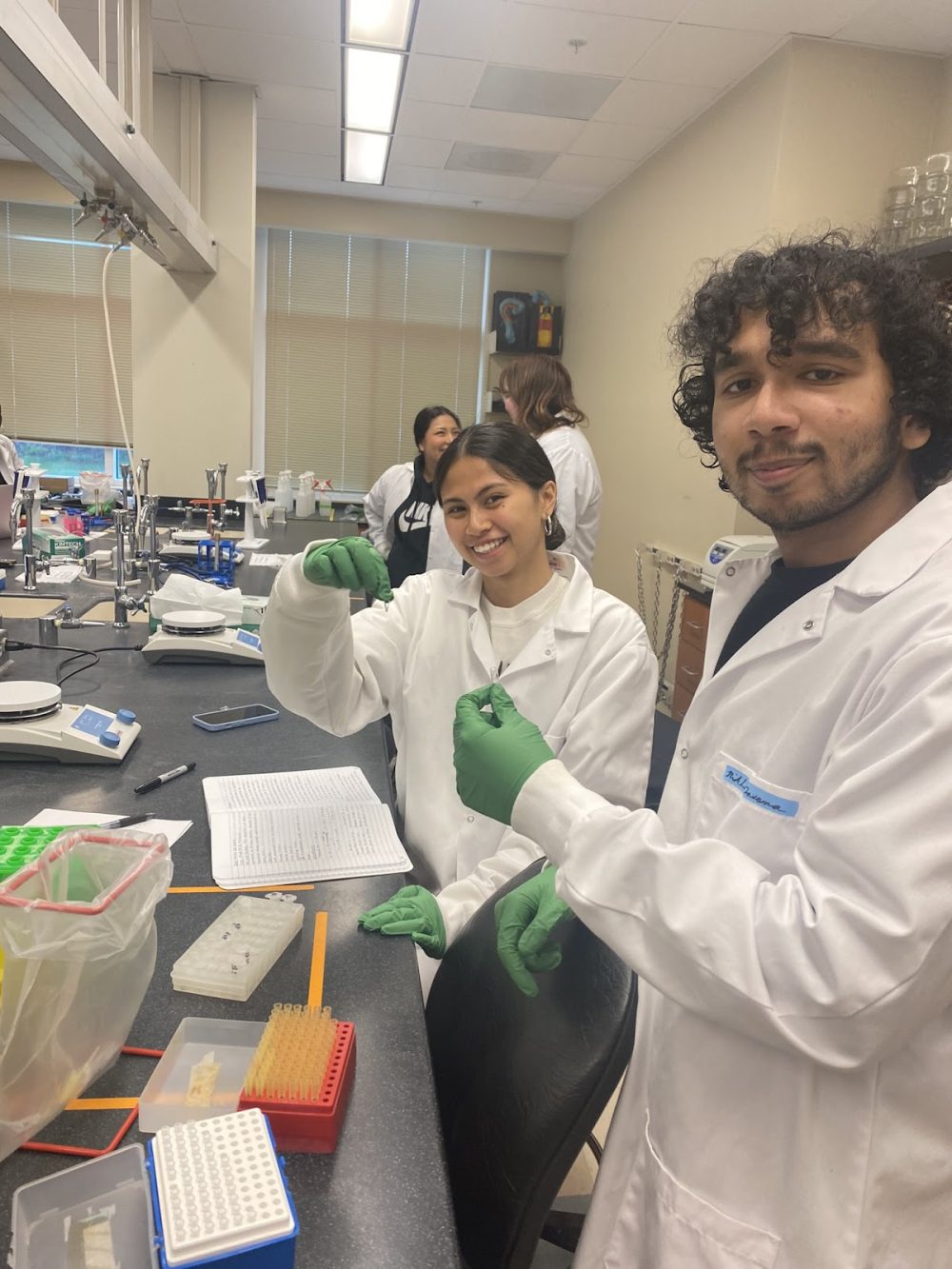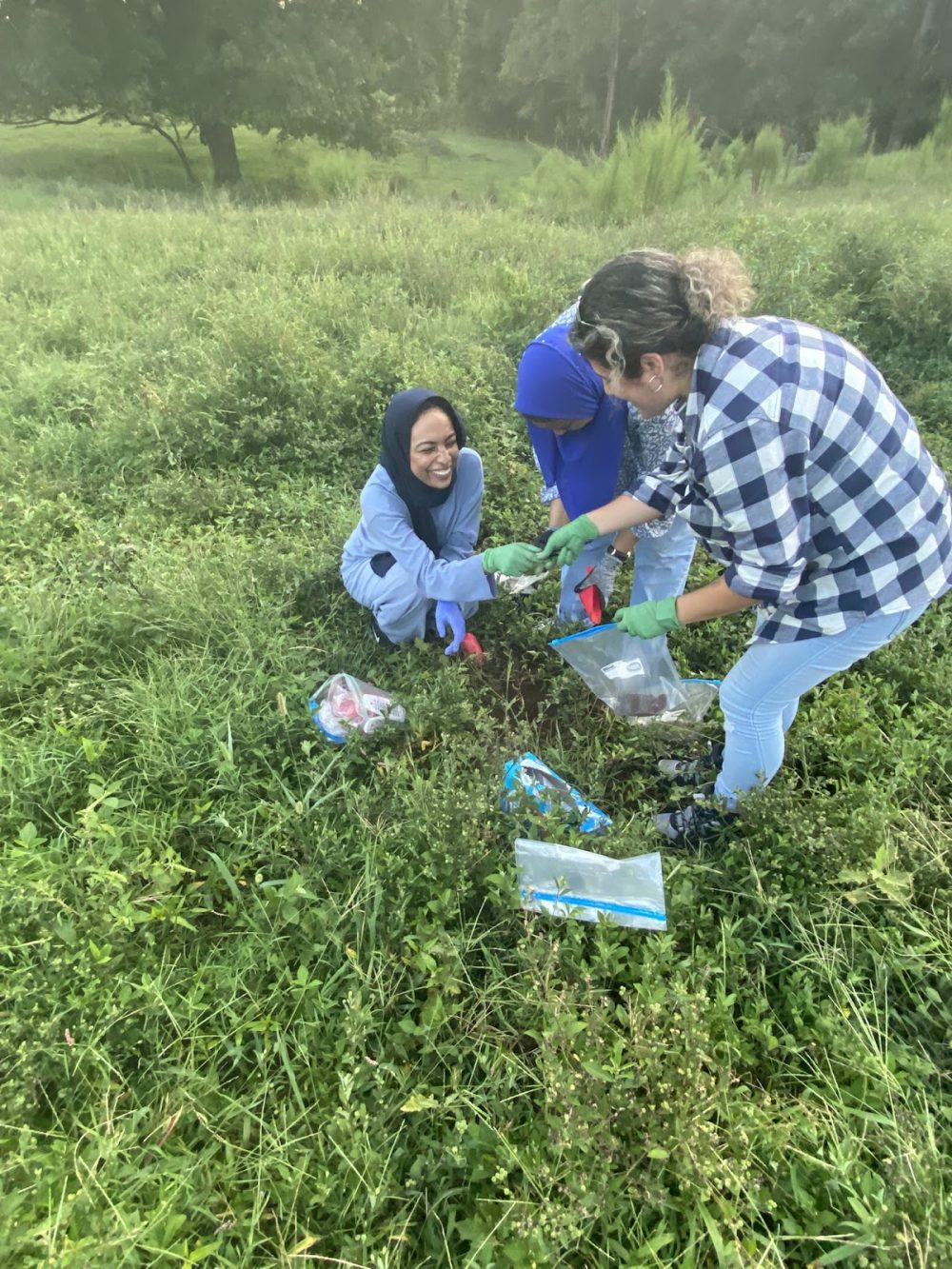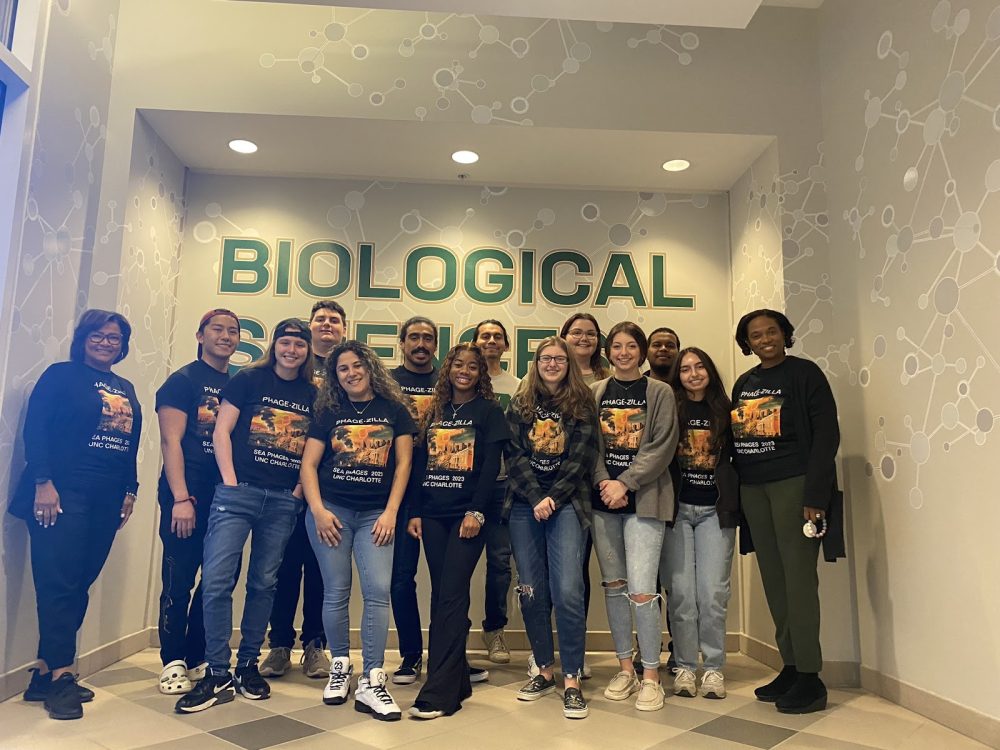Course Based Undergraduate Research Experiences (CURES)



Background
Undergraduate research experiences (UREs) have been shown to increase the interest, engagement, and persistence of underrepresented students in STEM majors. However, UREs are highly competitive and not easily attainable due to the large number of STEM students pursuing these opportunities and the limited space available in traditional research laboratories. The Department of Biological Sciences has utilized course-based undergraduate research experiences (CUREs) to increase the number of URE opportunities available to underrepresented students.
What is a Course-based Research Experience?
When whole classes of students address a research question or problem that is of interest to the scientific community.
How Do Students Benefit From Research?
- Knowledge & Skills
- Project Ownership
- Self-efficacy
- Science Identity
CUREs in DBS
- Howard Hughes Medical Institute sponsored (Science Education Alliance (SEA) – Phages Program – The SEA-PHAGES (Science Education Alliance-Phage Hunters Advancing Genomics and Evolutionary Science) program is an international project hosted by the Howard Hughes Medical Institute in collaboration with HHMI Professor Graham Hatfull at the University of Pittsburgh. The phage discovery and genomics platform has two primary components.
Fall Course – Bacteriophage Discovery (BIOL 4164) – This component consists of isolation, purification, and amplification of new phages from environmental samples by using a specific bacterial host, coupled with electron microscopy and DNA isolation and analysis.
Spring Course – Investigating Bacteriophage Genomics (BIOL 4165) – This component consists of the bioinformatic dissection of phage genomes using computational programs to identify genes, regulatory elements, and other genomic features.
Globally Networked Learning Laboratory (GNL) Course – The GNL course is a collaborative program between UNC Charlotte and institutions in other countries. Currently, the GNL course collaborates with the University of Lagos in Lagos, Nigeria (UNILAG) and the University of Johannesburg in Johannesburg (UJ), South Africa. The collaborative program with UNILAG is called the EDUCHALA (Education in Charlotte and Lagos) Program and the collaborative program with UJ is called the EDUCHAJO (Education in Charlotte and Johannesburg) Program. Both programs consist of a course-based research experience. The majority of the course consists of students from UNC Charlotte and students from the international institution working together on a research project focused on the diversity of bacterial communities in soil samples taken from both campuses. The students work in parallel on research questions and share protocols, data, as well as best practices. At the end of the semester, data is presented in the form of a research symposium that the two campuses will have together, virtually.